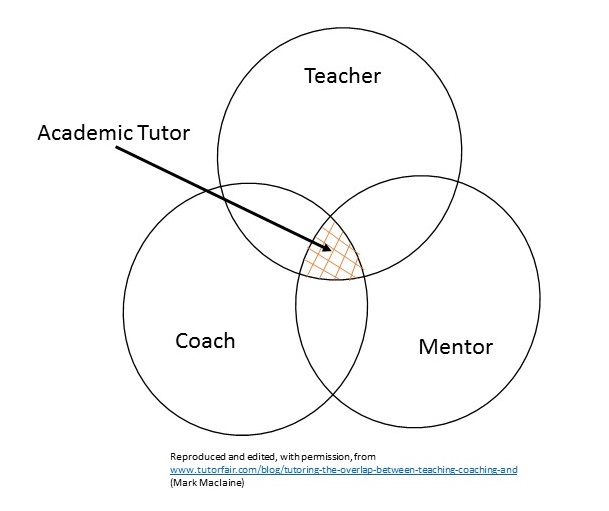The role of an Academic Tutor is to support students’ academic, personal and professional development, by providing support across various themes. But what does this actually mean in practice, and how can you do it effectively?
 On the website tutorfair.com, Mark Maclaine suggests that “Tutoring is the hybrid of teaching, coaching and mentoring because it involves imparting knowledge and wisdom to students, coaching them to reach their full potential and sharing specific personal experiences with them so they can grow as people.” While he is referring in this instance to the tutoring of school children, the concept holds true for Academic Tutoring: when done effectively the role is a combination of all three of these things.
On the website tutorfair.com, Mark Maclaine suggests that “Tutoring is the hybrid of teaching, coaching and mentoring because it involves imparting knowledge and wisdom to students, coaching them to reach their full potential and sharing specific personal experiences with them so they can grow as people.” While he is referring in this instance to the tutoring of school children, the concept holds true for Academic Tutoring: when done effectively the role is a combination of all three of these things.
As a teacher you might help students get to grips with how to structure an essay, discuss with them what critical thinking means in your discipline, or explain what they need to know about issues such as academic integrity.
As a coach you might support your tutee to work towards a particular academic or career goal, helping them to identify what it is they want to achieve and working with them to determine the best way to get there. This might involve looking at their feedback, helping them identify their strengths and weaknesses, and aiding them to reflect on their progress.
As a mentor you might use your own experiences of the university and your particular discipline to guide your tutee through their university journey. This might involve helping them make decisions about their course and encouraging them to engage in other extra- and co-curricular activities.
Key skills for all these roles are being able to listen and interpret what a tutee is trying to tell you, and being able to ask effective questions. Even with these important skills, some students can still be hard to reach and to motivate, so being able to spot and discuss unhelpful thinking styles can be helpful too.
Unhelpful thinking styles: https://web.microsoftstream.com/video/5a0db071-4e40-479b-a381-453c595f3395


